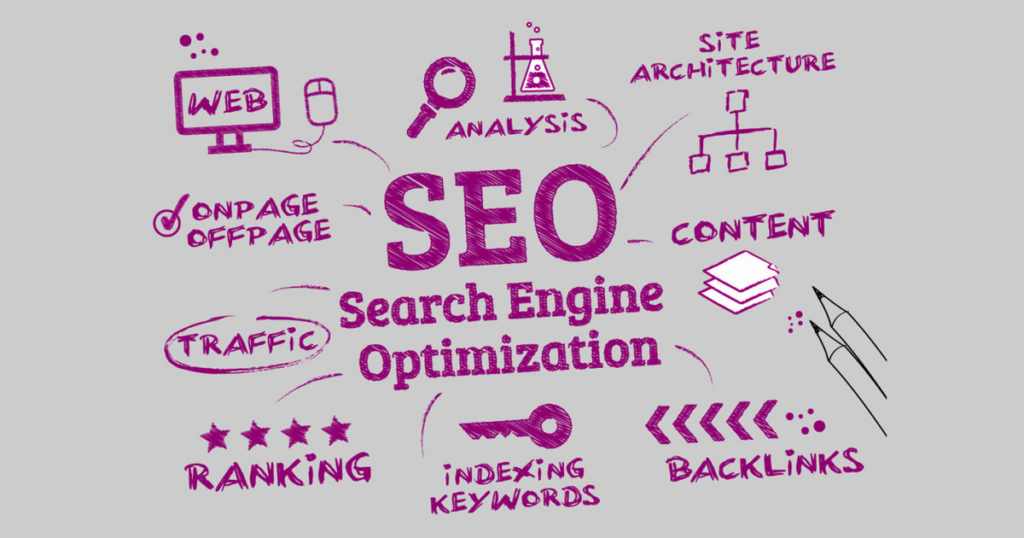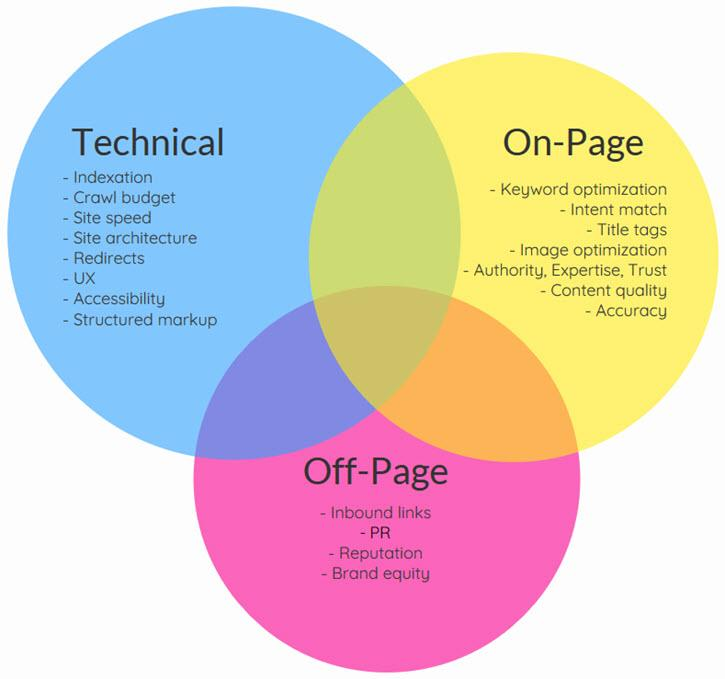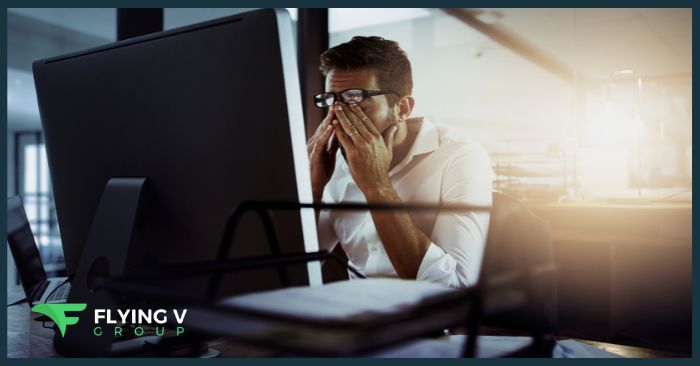The landscape of digital marketing is constantly evolving, and organic search engine optimization (SEO) is a key strategy that empowers businesses to improve their online visibility without relying on paid advertising.
This method perfectly aligns with the natural algorithms of search engines, effectively building trust and credibility among potential customers.
By strategically applying organic SEO techniques, businesses are positioned to achieve sustainable growth, ensuring their content resonates deeply with both search engines and their intended audience.
- The Fundamentals of Organic Search Engine Optimization
- Key Components of Organic SEO
- The Role of Content in Organic SEO
- Understanding Google’s Algorithm
- The Impact of User Experience (UX) on Organic SEO
- SEO Tools and Technologies
- Challenges and Solutions in Organic SEO
- Harnessing the Power of Organic Search Engine Optimization
- FAQs
The Fundamentals of Organic Search Engine Optimization

Organic search engine optimization holds significant importance in the realm of digital marketing.
A website’s content, structure, and on-page elements can be optimized to increase its visibility on search engine result pages (SERPs), without the need for paid placements.
This natural approach to SEO not only improves a site’s rankings but also enhances user experience, leading to higher engagement rates and conversion potential.
How Organic SEO Works
At its core, organic SEO is about understanding and leveraging the algorithms that search engines use to rank web pages.
These algorithms consider hundreds of factors, from keyword relevance and content quality to site speed and mobile compatibility.
By aligning your website’s content and structure with the following criteria, you can improve your rankings organically, attracting more traffic without direct advertising costs.
- Keyword Research and Optimization: Identifying the terms and phrases your target audience is searching for is crucial. By incorporating these keywords naturally into your content, titles, and meta descriptions, you enhance your visibility for those searches.
- Quality Content Creation: Search engines favor websites that offer valuable, original content. By providing insightful, relevant content, you meet the needs of your audience and the preferences of search engines, fostering both user engagement and organic growth.
- Link Building: Earning backlinks from reputable sites not only drives direct traffic but also signals to search engines that your content is authoritative and trustworthy, boosting your organic rankings.
Key Components of Organic SEO
Organic SEO is multifaceted, incorporating various strategies and tactics to optimize different aspects of your website. Here’s a closer look at the key components:

On-Page SEO: This involves optimizing individual web pages to rank higher and earn more relevant traffic. Techniques include using targeted keywords in strategic locations, optimizing title tags and meta descriptions, and ensuring content quality and relevance.
Off-Page SEO: This focuses on external ranking factors like backlinks. Building a robust profile of high-quality backlinks from authoritative sites in your industry can significantly boost your site’s credibility and search engine rankings.
Technical SEO: Enhancing the technical aspects of your site, such as its mobile-friendliness, loading speed, and architecture, can improve both user experience and search engine rankings. Search engines prioritize sites that are fast, secure, and easy to navigate.
The Role of Content in Organic SEO
Content serves as the primary medium for businesses to engage their audience and signal relevance to search engines.
Effective content for organic SEO goes beyond mere keyword insertion. It involves crafting high-quality, relevant content that addresses the needs and interests of your audience.
This content should provide valuable solutions and insights that are shareable and attract traffic while fostering trust and loyalty in users.
Content for organic SEO comes in various formats, including videos, infographics, and podcasts. Each format offers unique ways to captivate and educate your target market.
Additionally, content optimization includes creating compelling meta descriptions and title tags. These elements are critical for click-through rates from SERPs.
Crafting content that search engines can easily interpret and rank, while engaging and relevant to users, is key to successful content optimization.
In the dynamic field of organic SEO, content is a critical element that bridges the gap between the technical aspects of SEO and the human element of your online presence.
It is through the synergy of quality content and SEO best practices that websites can achieve outstanding visibility, driving organic growth and establishing a robust online authority.
Understanding Google’s Algorithm
Google’s algorithm can be compared to the central nervous system of the internet. It is responsible for deciding the position of websites on SERPs.
This intricate and constantly changing formula sifts through billions of web pages to deliver the most suitable results for user queries.
Some of the key factors that are considered include:
- Relevance: How well a page aligns with a searcher’s query, based on keywords and content themes.
- Authority: Assessed through the number and quality of external links pointing to a page, indicating its reliability and trustworthiness.
- User Experience: Google increasingly prioritizes sites offering a seamless, engaging user experience, including fast load times and mobile optimization.
Understanding and adapting to these algorithm updates are crucial for maintaining and improving your website’s organic search performance.
The Impact of User Experience (UX) on Organic SEO
The importance of user experience (UX) in organic SEO cannot be overstated. A positive UX can lead to higher engagement rates, more time spent on the site, and reduced bounce rates, all of which are signals to search engines that your site is valuable to users.
Key UX factors include:
- Site Navigation and Structure: A well-organized site structure helps users and search engines find content more efficiently, improving the overall experience and performance in search rankings.
- Mobile Optimization: With the majority of searches now performed on mobile devices, ensuring your site is responsive and mobile-friendly is essential.
- Page Speed: Fast-loading pages is crucial for keeping users engaged and reducing bounce rates, a significant factor in Google’s ranking algorithm.
SEO Tools and Technologies
Leveraging the right tools can significantly enhance your organic SEO efforts, providing insights into your website’s performance, competitor analysis, and uncovering opportunities for optimization.
Essential tools include:
- Google Analytics: Offers comprehensive insights into your website’s traffic, user behavior, and conversion metrics.
- Google Search Console: Helps monitor and maintain your site’s presence in Google Search results, including viewing your referring domains, mobile site performance, and high-traffic queries.
- Keyword Research Tools: Tools like SEMrush, Ahrefs, or Moz Keyword Explorer can help identify valuable keywords to target for organic search visibility.
Challenges and Solutions in Organic SEO
While organic SEO offers numerous benefits, it also comes with its set of challenges. Here are some common obstacles and strategic solutions:
- Staying Up-to-Date with Algorithm Changes: Google frequently updates its algorithm, which can impact your site’s ranking. Regularly educating yourself and adapting your strategies can mitigate these risks.
- Keyword Competition: Highly competitive keywords can be challenging to rank for. Focusing on long-tail keywords and niche topics can provide more accessible opportunities for visibility.
- Content Saturation: As more content becomes available online, standing out becomes harder. Investing in high-quality, unique content and multimedia can enhance user engagement and differentiate your site.
- Technical SEO Issues: Websites often face technical SEO issues like slow speed, mobile unfriendliness, and crawl errors. To fix these problems, regular website audits are necessary.
You can use tools like Google PageSpeed Insights to improve speed, ensure mobile-friendliness, and use Google Search Console to fix crawl errors for efficient indexing.
Harnessing the Power of Organic Search Engine Optimization
Organic search engine optimization is undoubtedly an effective strategy for improving online visibility and reaching your target audience without the need for paid advertising.
By understanding and implementing the key components of organic SEO, from on-page optimization to enhancing user experience, businesses can build a solid foundation for sustainable growth.
Moreover, staying informed about Google’s algorithm changes and leveraging essential SEO tools can help navigate the complexities of organic search.
For businesses looking to maximize their organic search potential, partnering with a seasoned SEO firm like Flying V Group can provide the expertise and support necessary to navigate the ever-changing landscape of search engine optimization.
Reach out to our team for a comprehensive strategy tailored to your unique needs, and start your journey to SEO success today.
FAQs
What is organic search engine optimization (SEO)?
Organic SEO is the practice of optimizing your website to rank higher in search engine results pages (SERPs) without paying for placement. It involves techniques like keyword research, content creation, and building backlinks to enhance site visibility and user experience.
How long does it take to see results from organic SEO?
The timeline for seeing results from organic SEO can vary widely, typically ranging from 3 to 6 months. Factors influencing this timeframe include the competitiveness of your industry, the current state of your website, and the consistency of your SEO efforts.
Is organic SEO better than paid search advertising?
Both organic SEO and paid search have their advantages. Organic SEO is cost-effective and offers long-term benefits, building credibility and trust with your audience. Paid search provides immediate visibility and is highly customizable. Ideally, a balanced approach utilizing both strategies works best for most businesses.
Can I do organic SEO on my own, or do I need to hire an expert?
While it’s possible to undertake basic SEO efforts on your own, especially with various resources available online, hiring an expert or an agency can significantly accelerate and enhance your results. SEO professionals have the experience and tools to navigate complex SEO landscapes more effectively.
How often should I update my website for optimal organic SEO?
Regular updates are crucial for maintaining and improving your SEO standing. This doesn’t necessarily mean daily changes but rather the consistent addition of high-quality content, routine checks for any broken links or errors, and periodic updates to ensure your website remains aligned with the latest SEO best practices.






0 Comments